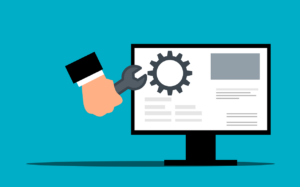The Software Patch is a Nuisance and a Necessity
Valentine’s Day kicked off a big week for software patch fans, as Apple sent out a patch for its operating systems and Microsoft pushed a flurry of patches for Windows.
 If you are not a software patch fan, you should be. The seconds you spend patching work and personal devices can save thousands of dollars and dozens of hours cleaning up from cyber criminals who exploit vulnerabilities. Yes, patches are a nuisance and more common than most would like them to be, but they are also a necessity if you care about cyber security.
If you are not a software patch fan, you should be. The seconds you spend patching work and personal devices can save thousands of dollars and dozens of hours cleaning up from cyber criminals who exploit vulnerabilities. Yes, patches are a nuisance and more common than most would like them to be, but they are also a necessity if you care about cyber security.
Why Do I receive so many software update requests?
Responsible software makers continually evaluate threats to their systems and issue software patches to fix them. Apple was tipped off to a flaw in its operating systems that could allow hackers to install and execute code on an unpatched device. This patch fixed what is known as a Zero-Day Flaw or Zero-Day Exploit, which is a flaw that exists in software when it ships. Hackers carefully review every new piece of software to find vulnerabilities in security, as do researchers familiar with vulnerabilities. Apple issued its software patch in response to findings by a researcher who recognized the potential risk.
Microsoft, as usual, is furiously patching its most recent Windows release to close 75 security gaps, including some that would allow a hacker to bypass Windows malware filters or access system functions.
Patching Protects Against Phishing
Everyone who uses Windows or iOS should apply these software patches immediately. Doing so, on personal devices as well as work-issued devices, delivers two real benefits. First, it blocks a potential risk to cyber security that is known to and in use by criminal hackers. Second, it nullifies some phishing attacks by making it impossible for hackers to deliver malicious software.
The exploits patched by Apple and Microsoft may require users to visit a compromised website or download software that can exploit the known vulnerability. A software patch removes the vulnerability, so even if an employee clicks on a compromised link, the hacking attempt fails.
Every business should make software patches mandatory for all personal and work devices, particularly personal smart phones and laptops, which may access business WiFi or networks when employees come to the office. Software patches are usually sent out by software manufacturers automatically, but users may find them a nuisance and ignore them. Businesses can assist with updates by emailing staff when security patches are sent out. Ask employees to update their devices and provide links to download sites and additional information from manufacturers.
Patches may arrive at inconvenient times and employees may consider them a bother, but they are an essential piece of overall cyber security. Be aware that failure to patch can violate a cyber liability policy or expose a business to government fines if an unpatched exploit leads to a data breach.
Installing software patches is good cyber hygiene and part of employee cyber security awareness. Protect Now has developed an employee training program that changes culture by changing the way employees consider cyber security. We go beyond concepts and hypotheticals to help employees understand their attitudes about cyber security and the need to apply the same standards they use in their personal lives to data protection in the workplace. Contact us online to learn more, or call us at 1-800-658-8311.


























